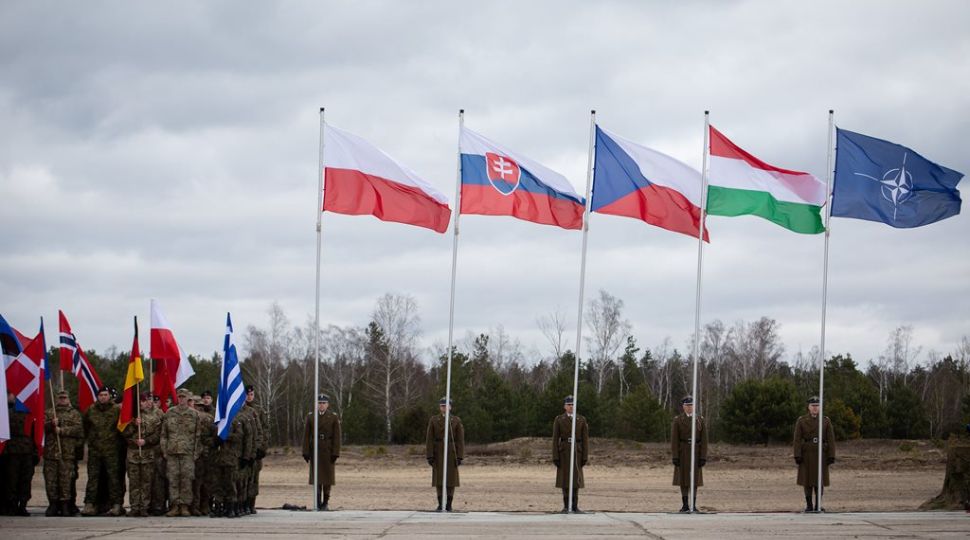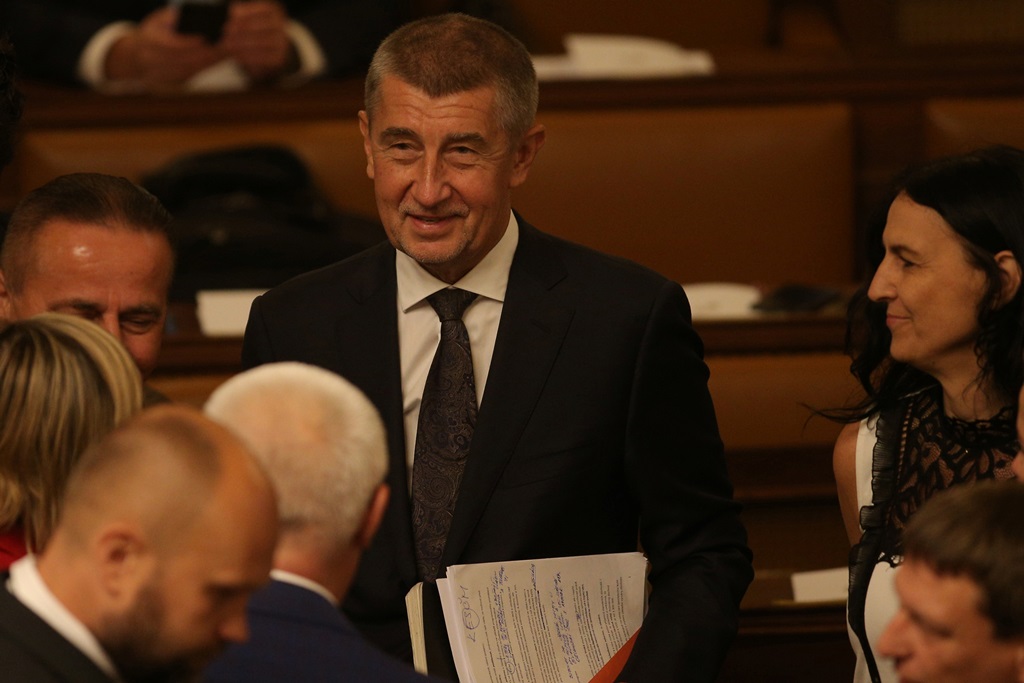"Reasonable Europe": Czech Presidency of the Visegrad Group

V4 in the EU
The pace of the Czech presidency of the V4 will be determined by EU matters. The Visegrad Group of countries (Czech Republic, Hungary, Poland, Slovakia) coordinated their positions at the July European Council, where the highest posts in the EU were selected. The V4 prime ministers agreed to reject the spitzenkandidaten mechanism. In the end, and for the first time in a decade, the V4 did not obtain any of the key EU positions. The Slovak candidate Maroš Šefčovič is still a joint V4 candidate for EC vice-president.
The presidency’s motto is “Reasonable Europe” and indicates a restrained approach by the V4 to deepening EU integration. The Czech government, sceptical of its country’s accession to the euro area, opposed the creation of a separate budget for the zone. In its view, EU integration should instead focus on the EU’s “four freedoms”. This approach should apply, among others, to EU trade policy that favours the export-oriented Czech economy, as well as to EU enlargement policy. Also, the Babiš government highlights the need to cooperate more with the Western Balkans countries than with the Eastern Partnership members. The meetings within the “V4+” format should better position both the Czech Republic and the V4 within the EU. Germany is considered the preferred partner in this format, which Babiš explains by the V4’s strong economic ties to that country. Moreover, consultations with representatives of the Croatian government, including in the area of transport, are intended to match the second half of the Czech V4 presidency with the Croatian presidency of the EU. The Czech Republic connects Brexit with a potential reduction of EU funds, weaker positions of Member States opposed to deepening EU integration, and negative effects on Czech exports. To alleviate these concerns, the Czech presidency calls for as close a relationship as possible between the UK and the EU, as well as intergovernmental consultations aimed at counteracting restrictions on trade.
Czech Presidency’s Goals
The main goal is to negotiate the largest possible amount of funds under the Common Agricultural Policy and cohesion policy in the MFF for 2021-2027. In addition, the Czech Republic will continue to strengthen V4 cooperation in the field of security, both within NATO and the EU. The work on the creation of a Joint Command of the V4 Logistics Support Group should contribute to the implementation of Alliance goals. The V4 contribution to EU security comes from the Visegrad Battle Group, which is on ready status in the second half of this year, with the participation of Croatia. Its next ready formation is planned for the first half of 2023.
Regional and European cooperation on migration plays an important role for the ruling Czech party, ANO, both in domestic and foreign policy, stemming from high public interest. In a CVVM study from April, migration and security were identified by Czechs as the most important areas of cooperation in the EU. According to Babiš, behind the Czech opposition to Frans Timmermans’s candidacy for the post of EC president stood differences on migration. The Czech Republic does not agree to increase the competences of the European Border and Coast Guard Agency (Frontex) and favours maintaining the prerogatives of the national services to protect state borders, emphasizing the supremacy of state institutions over EU agencies.
At the same time, the Czech presidency defines one of the threats to further economic growth of the V4 countries as shortages in the labour force. In May, the unemployment rate in the Czech Republic reached a record low of 2.6%, the lowest in the EU. However, to the Czechs, growth in an economy with low unemployment can be achieved not with increased migration but through more innovation. To do this, the Czech presidency calls for soliciting EU funds for science and innovation, promotion of investments implemented as part of the fourth industrial revolution (industry 4.0) or cooperation with other countries, for example, Israel, in creating favourable conditions for startups. These proposals coincide with the government’s Innovation Strategy of the Czech Republic 2019-2030. In turn, on infrastructure development, the Czech Republic emphasizes the old proposal to build a high-speed rail line linking Warsaw and Budapest via Bratislava and Brno. This follows on from the Slovak V4 presidency, including quarterly meetings of a special working group. The V4 would have to adapt the high-speed rail networks to Trans-European Transport Network guidelines.
Defining V4 Goals
The presidency’s programme narrows the sphere of energy cooperation to nuclear energy. The focus on this sector reflects Czech assumptions about its development, namely the construction of subsequent blocks of the nuclear power plant at Dukovany and the government’s plans to increase nuclear electricity production from 30% to 58%. At the same time, the Czech government supports the creation of the Nord Stream 2 gas pipeline. Slovakia withdrew its objections to this project after a visit by Prime Minister Peter Pellegrini to Moscow in June this year. Poland opposes it. Therefore, it seems unlikely the V4 will develop a common position against the project, as they did in 2016 when the members sent a letter to the EC urging it to intervene in this matter.
The challenge for the Czech presidency will be to ensure V4 coherence in the face of differences over climate objectives. The Slovak government is one of 18 EU countries, but the only one from the V4, to have declared its support for the EU’s goal of achieving climate neutrality by 2050 at the June European Council. A new initiative among the four members is to counteract smog in large cities. The Czech Republic is also planning to begin a regional debate on light pollution.
Babiš, the V4, and the EU
In the negotiations on the EU budget, the Czech position was weakened by an EC initial audit from June this year that indicates Babiš has a conflict of interest in connection with the acquisition of EU funds by his former Agrofert concern. Earlier, in December 2018, the European Parliament adopted a resolution with similar conclusions. The EC audit confirms the continued close links between the PM and his former companies and calls on Agrofert to return subsidies granted since 2017. In parallel with the EU action, an investigation into Babiš is being carried by the Czech prosecutor's office regarding possible misuse of EU subsidies for the construction of a conference and entertainment centre.
The specificity of the V4 format with a leading role for prime ministers means Babiš, with his positive attitude towards the group and cordial contacts with the other V4 heads of government, is in a favourable spot to coordinate group positions in the EU. The Czech PM is clearly more enthusiastic about the format than his predecessor, the Social Democrat Bohuslav Sobotka. The V4 is perceived by the current Czech government as the starting point for building a wider coalition, including negotiations on the MFF.
Conclusions
For Poland, the Czech presidency will be an opportunity to strengthen the development of sectoral cooperation in such areas as security and infrastructure. However, roadworks were omitted and the railway system less developed in the presidency programme than expected. The proposal to build up regional innovation corresponds to the assumptions of the Warsaw Declaration adopted by the V4 prime minister in 2017 during the Polish V4 presidency. Building a common brand around technological development—and not migration policy—within the Visegrad Group may not be effective enough due to the domestic policies of the Czech Republic and other countries.
The differences between the countries in defining the goals of the V4 undermine the development of cooperation in other areas, such as energy and climate change. The concerns raised by EU institutions regarding the conflict of interest of the Czech prime minister may adversely affect the negotiating position of the V4 states, which demand maintaining cohesion funds at the current level and greater flexibility in spending EU funds and reject the idea of combining the rule of law with access to Union funding.





